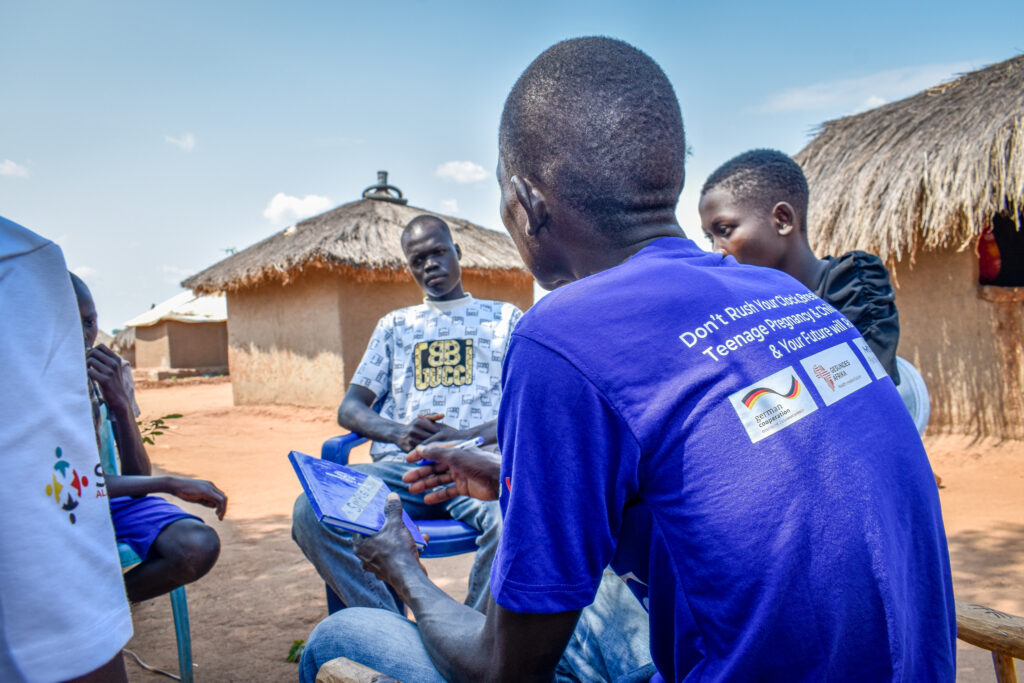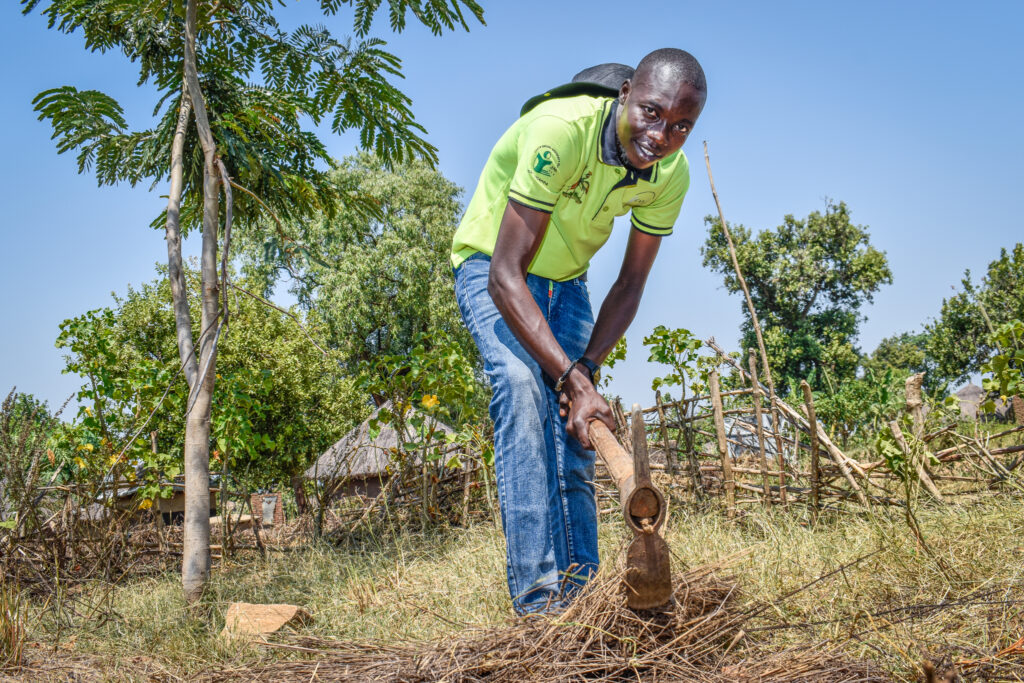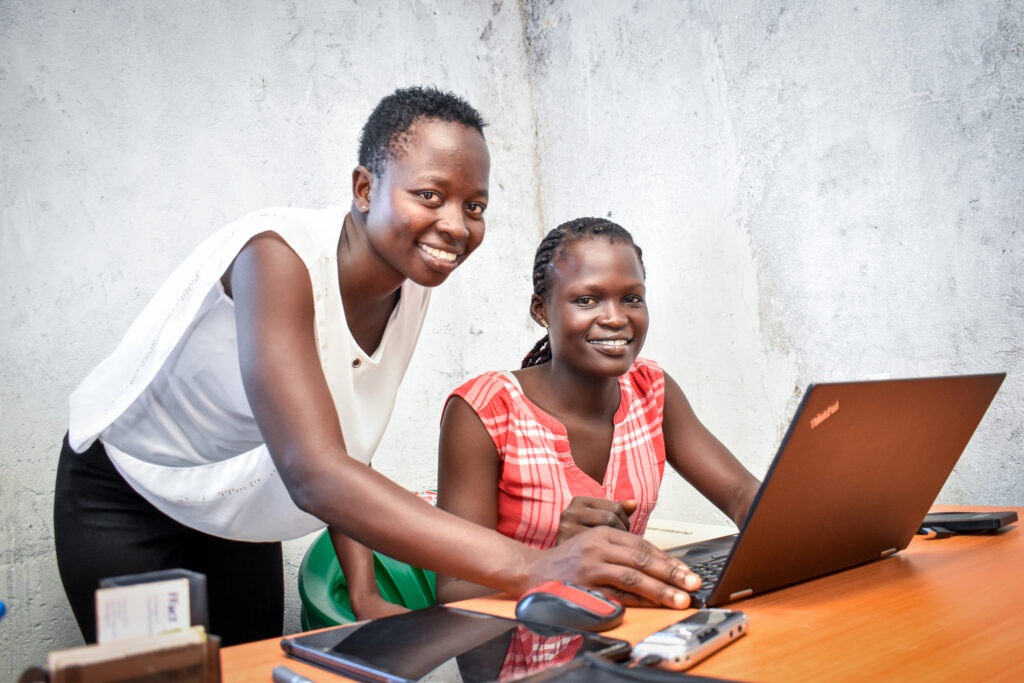East Africa faces a growing challenge, with over 24.5 million displaced by conflict and other crises. Locally-led initiatives are emerging as vital drivers of sustainable change, offering hope for affected communities.

The Healthy Empowered Youth for Better Outcomes (HEYO) project is at the forefront of these efforts. It works in Uganda’s Terego and Yumbe districts to support young people from refugee and host communities by strengthening community-based organisations and local institutions.
A Holistic, Locally-Rooted Approach
In partnership with Cordaid, the project takes a holistic, locally-rooted approach to tackling critical issues such as teenage pregnancy, child marriage, and food security.
Emmanuel Bida Tito, aged 28, founded the Community Alliance Network (CAN), one of the area’s refugee-led organisations. He fled South Sudan in 2013 after an outbreak of violence. ‘My father was killed in the war. Life became unbearable, and I went to Uganda to build my dreams.’
‘Our organisation operates across thematic areas,’ Emmanuel continues. ‘We attend sector meetings, share the challenges of the community, and inform government agencies about our priorities.’
‘Girls in the settlement use pregnancy as a way to escape the humiliation and costs of managing their period.’
‘We stand with the people’
According to its founder, CAN plays a crucial role in the community thanks to the trust it has earned. ‘We stand with the people we serve and spotlight their situation. They understand that collaboration is needed to make meaningful change.’

Life in refugee settlements presents numerous challenges. To address some of these issues, the HEYO project collaborates with refugee-led organisations to carry out community advocacy and mobilisation activities focused on key priorities. One major area of focus is sexual and reproductive health and rights, particularly intending to end teenage pregnancy and child marriage.
Debunking stereotypes
Emmanuel: ‘Girls in the settlement use pregnancy as a way to escape the humiliation and costs of managing their period. They say pregnancy gives them a nine-month break from bleeding and spending on sanitary products. This is why sharing correct information in their own language is important. I organise community activation events, such as dialogues on market days, to drive the conversation about how parents can support their teenagers. We also engage boys and young men by debunking stereotypes about menstruation.’
Food and Income
Another focus area is ensuring enough food and income for the population. In the refugee settlements in northern Uganda, Cordaid supports four community-based organisations and has trained 616 young mothers to establish sustainable businesses.
CAN committee member Moses Bida says, ‘Kitchen gardening has changed how we feed our community. We don’t have to rely only on food offered by the World Food Programme anymore. We can supplement our diet by growing nutritious crops like cabbage, tomatoes, and other leafy vegetables.’
‘The children of the host community taught us how to speak the language. This made our lives much easier.’
The community-based organisations also provide financial literacy training, equipping 90 refugee youth in the settlement with financial management, budgeting, and small-scale entrepreneurship skills.
Leading Local Action
Today, CAN is a crucial player leading local action in the refugee settlement. Emmanuel says, ‘We use locally led action tailored to the needs of our community and a shared understanding of our challenges and what we think is the best solution.’
Abau Betty Wilson, 20, sits in front of a laptop in a small rectangular room in the Imvepi refugee settlement. ‘When we arrived in Imvepi,’ she says, ‘we faced a serious language barrier. Most people here come from a different culture. The children of the host community taught us how to speak the language. This made our lives much easier.’
Lack of doctors
Betty is curious and eager to learn. After passing the national exams, she joined an ICT training organised by Hope Foundation, a refugee-led community-based organisation. ‘Now, I am an ICT mentor. I have trained 68 young people who will receive certificates in basic ICT skills.’
In addition to these achievements, Betty aspires to become a medical professional. ‘I would like to study clinical medicine and public health to work in a large hospital. So many people here are suffering because of a lack of doctors.’

Critical discussions about health
Although she remembers her arrival at the Imvepi settlement as challenging, Hellen Kojo quickly started volunteering for humanitarian organisations. She became a medical representative and joined initiatives for community health awareness.
‘When I reflect on my journey,’ Hellen says, ‘I feel so lucky. I am safe now and can contribute to my community’s well-being. The HEYO project involves youth in critical discussions about their health and the need to make intelligent choices. I am a young mother, and I enjoy supporting other mothers and other adolescents in making healthy choices, like delaying marriage and staying in school.’